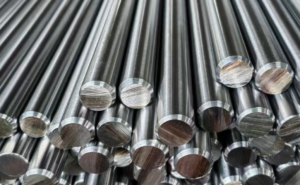M2 and D2 steel each have unique properties and a wide range of application scenarios, making them indispensable and important materials in the manufacturing industry. In today’s article, we will conduct a detailed analysis of the difference between M2 and D2 steel from a professional perspective, hoping to provide readers with accurate, detailed, and authoritative comparative information.

What is the difference between M2 and D2 steel?
1. Characteristics and applications of M2 steel
M2 steel, also known as M2 high-speed steel, is a high-speed tool steel with a high molybdenum content. Its main features are high hardness, high strength, good toughness and corrosion resistance, as well as excellent heat treatment properties. The hardness of M2 steel can reach 62-67HRC. This excellent hardness gives it excellent wear resistance and anti-wear capabilities, allowing it to withstand high-intensity cutting and stamping operations.
The high strength of M2 steel is also a highlight. It has high tensile strength and compressive strength and can maintain stable performance in complex working environments. At the same time, M2 steel also has good toughness, can remain intact when withstanding impact and vibration, and is not easy to crack or collapse. This gives M2 steel a wide range of application prospects in the manufacture of various cutting tools, molds and wear-resistant parts.
In addition, M2 steel also has good corrosion resistance, is not susceptible to corrosion at room temperature, and can maintain a long service life. This feature enables M2 steel to exhibit excellent performance in humid and corrosive environments.
2. Characteristics and applications of D2 steel
D2 steel is a high carbon, high chromium cold work die steel. Its main features are high wear resistance, abrasion resistance and excellent processing stability. The hardness of D2 steel can reach the range of 55-62HRC after heat treatment. This hardness level gives it unique advantages in manufacturing cutting tools, stamping dies, etc.
The high chromium content of D2 steel gives it mild corrosion resistance in hardened conditions. Although it doesn’t contain enough chromium to classify it as stainless steel, its corrosion resistance is far better than some common carbon steels. This gives D2 steel a clear advantage when making tools that need to resist a certain amount of corrosion.
In terms of processing performance, D2 steel also performs well. It has good cutting performance and processing stability, and is suitable for high-precision processing. This feature enables D2 steel to have higher processing efficiency and better processing quality when manufacturing high-precision tools.
3. The difference between M2 and D2 steel
Although M2 and D2 steel are both excellent metal materials, they have certain differences in performance and application. First of all, in terms of hardness, the hardness of M2 steel is slightly higher than that of D2 steel, which makes M2 steel better resistant to wear and tear when withstanding higher-intensity cutting and stamping operations. Secondly, in terms of toughness, the toughness of M2 steel is also better than that of D2 steel, which makes M2 steel more stable when withstanding shock and vibration. However, D2 steel has excellent processing stability and corrosion resistance, which makes it more effective in manufacturing high-precision tools and environments that need to resist certain corrosive conditions.
Conclusion
To sum up, M2 and D2 steels have their own merits and can exhibit excellent performance in different application scenarios.
Thank you for reading our article and we hope it can help you to have a better understanding of the difference between M2 and D2 steel. If you are looking for M2 and D2 steel suppliers and manufacturers online now, we would advise you to visit Sino Special Metal.
As a leading supplier of M2 and D2 steel from Shanghai China, Sino Special Metal offers high-quality M2 and D2 steel products at a very competitive price.




